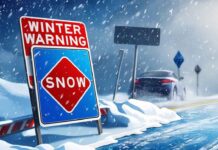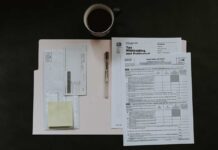
TORONTO – Weather – Environment Canada has issued a special weather statement for Toronto on Saturday due to potential significant rainfall.
The City of Toronto is advising everyone to take extra care when traveling and to take precautionary steps to protect their property and ensure their safety.
The City of Toronto has Protocols in Place to Provide for the Citizens
With significant rainfall expected, visibility may be limited. Please walk, bike and drive with caution. Motorists and cyclists should be extremely cautious around areas of high water/ponding, and drivers should be mindful near sidewalks where pedestrians are present.
Toronto Water’s storm readiness plan is in place. The City’s crews are available 24/7 to respond to flooding calls. The City undertakes regular inspections, cleaning, and maintenance of more than 10,000 kilometers of sewer pipes to ensure that the system operates well and has long-term capital plans to help alleviate basement flooding.
Transportation Services staff are ready to support the storm response by monitoring conditions on roadways and actively patrolling roads to clear debris and keep catch basins clear. Residents are asked to assist in clearing catch basins on their streets, where safe to do so if they become clogged, as clogged catch basins can result in street flooding and potentially in basement flooding.
Urban Forestry crews are on standby and available to respond to fallen trees and branches. The City undertakes regular inspections and maintenance of City-owned trees to ensure their ongoing health while preventing and mitigating tree failures.
When contacting 311 during extreme weather conditions, please be patient, expect high call volumes and some delays. Please call 911 in the event of an emergency situation.
Safety during significant rain or storms
There are several ways homeowners can protect themselves and their families in the event of a flood:
- Try to remain indoors.
- Move valuables in your basement to shelves or upper floors.
- Take cleaners, paint or chemicals off the floor so that they do not further contaminate potential floodwater.
- Ensure eavestroughs and downspouts are clear of snow, ice, and other debris, and are working properly.
- Shovel the snow and ice away from your foundation and onto a lawn, not onto the road.
In the event of a flooded basement
- Call 311 immediately to report basement flooding. During extreme weather conditions, residents should expect high call volumes and some delays. Calls will be answered by the first available agent.
- Do not enter a flooded basement. If flooding occurs in your basement and your power is on, call Toronto Hydro at 416-542-8000 to disconnect your power.
- Call your insurance company as soon as possible to report property damage caused by flooding.
- Reduce or eliminate water use in the home (don’t do laundry, wash dishes, flush the toilet, etc.), if you have already experienced a sewer backup or your backwater valve has been activated, as this household water could end up in your basement.
- Be mindful of your health and safety when cleaning a flooded basement. Do not stand in flood water – call a professional for assistance.
On roads and sidewalks
- Avoid driving, biking or walking especially in low-lying areas where flooding is known to occur.
- Exercise caution when driving and biking and avoid low-lying roadways and underpasses.
- Do not drive, bike or walk through deep water.
- If traffic signals are out, drivers and cyclists must treat the affected intersections as a four-way stop.
- Residents can assist by cleaning catch basins in front of their house to help water run off the roads and reduce the risk of flooded streets.
- Where City crews are responding/present, please drive or cycle carefully around them so that they can work quickly and safely.
- Streams, creeks, and rivers may have higher water levels during and in the days after heavy rainfall – avoid such areas whenever possible and use extreme caution.
Near or around trees
- Strong winds and ice accumulation can create hazardous conditions including tree failures and increased damages to trees.
- Report fallen trees, branches or other hazards by calling 311.
- When fallen City-owned trees need to be cleared, Urban Forestry crews will perform this work. Crews prioritize hazards to public safety or property, as well as roads that need to be cleared. They also prioritize assistance to Toronto Hydro where work needs to be done to restore power.
- Urban Forestry staff will investigate concerns of dangerous privately owned trees or branches. Clean-up related to privately owned trees is the property owner’s responsibility and residents should contact a tree service company.
Be cautious with your pet
When there’s high water expected, please:
- Be cautious with your dogs and always keep them on a leash when outdoors.
- Avoid areas with ponding.
- When in doubt, stay inside with your dogs and always keep your cats indoors.
Use this as an opportunity to take precautions in advance of the next storm to protect your properties from possible flooding
- Take advantage of the City’s Basement Flooding Protection Subsidy Program, in which the City offers owners of single-family, duplex and triplex residential homes a subsidy of up to $3,400 per property to install flood protection devices.
- Disconnect your downspouts from the sewer system.
- Be sure the grading around your home drains water away from all exterior walls.
- Check for and fix leaks in basement walls, floors, windows, and foundations.
- Clear eavestroughs and downspouts of leaves and other debris preventing proper drainage.
More information about basement flooding is available on the City’s website at https://www.toronto.ca/services-payments/water-environment/managing-rain-melted-snow/basement-flooding/.







